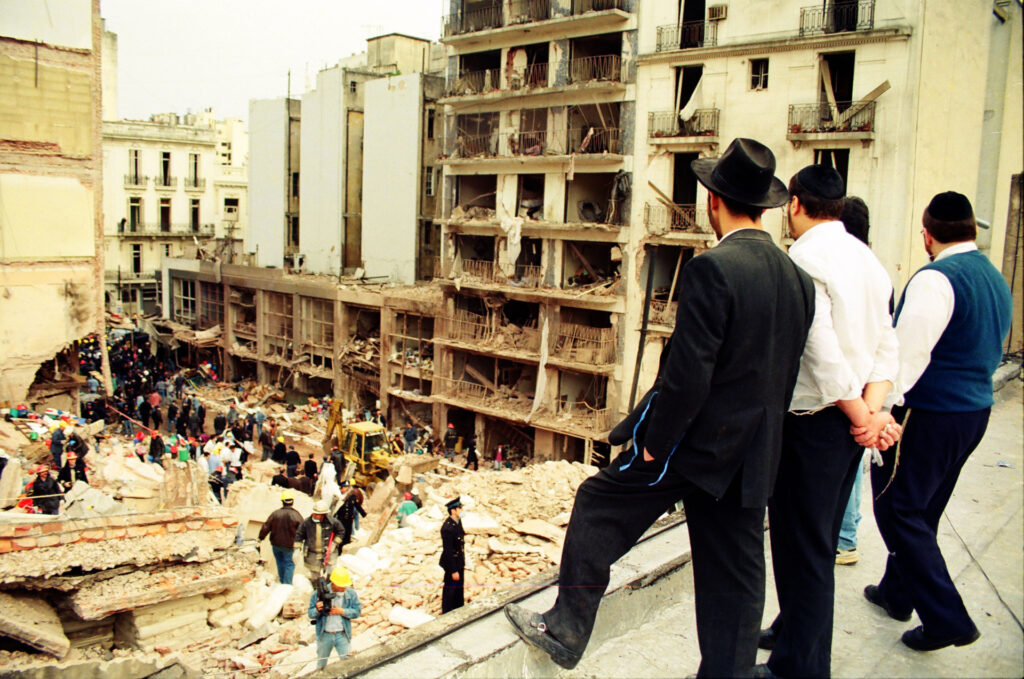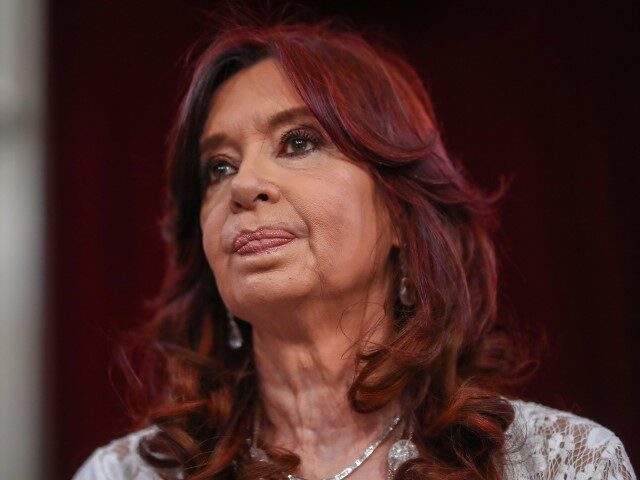Argentine prosecutor Mario Villar asked the nation’s courts on Monday to increase the six-year prison sentence imposed on former President Cristina Fernández de Kirchner, who was convicted of corruption in 2022, to 12 years.
Villar is also proposing that the courts reject Fernández de Kirchner’s appeal in the case, commonly referred to as Causa Vialidad (Road Case), which presently prevents her from serving the original sentence.
Argentine courts sentenced Fernández de Kirchner to six years in prison in December 2022 for defrauding the Argentine state of upwards of $1 billion through dozens of public road work contracts granted to Argentine businessman and close friend Lázaro Báez during her two presidential terms from 2007 to 2015.
Additionally, the court banned her from holding any public office in Argentina for life. Fernández de Kirchner was also facing illicit association charges as part of the Road Case, but the court ruled to acquit her, only convicting her of the corruption charges.
Fernández de Kirchner has not served her sentence as she was both the nation’s vice president and the head of the Argentine Senate at the time of her conviction, which granted her immunity from the court’s ruling.
Fernández de Kirchner then initiated a lengthy appeal process. The process presently protects her from serving jail time even after losing her immunity status following the start of President Javier Milei’s presidential term in December 2023. The Argentine legal system requires the Criminal Cassation Chamber and then the Supreme Court of Justice to review the appeals before she goes to prison.
If both courts reject all of Fernández de Kirchner’s appeals, she would have to serve her sentence. Given that she is over 70 years old, she could potentially ask to serve her sentence under house arrest.
In several court sessions scheduled between February and April, Argentine Judges Gustavo Hornos, Mariano Borinsky, and Diego Barroetaveña will hear both the prosecution and Fernández de Kirchner’s lawyers, who will argue in favor of maintaining the sentence, aggravating it, or revoking it.
Prosecutor Villar is requesting the court increase Fernández de Kirchner’s corruption sentence from 6 years to 12 years and that it revoke the acquittal of the separate illicit association charges. Villar is arguing that the initial sentence “does not reflect the seriousness of the act, is not in accordance with the principle of guilt, and encourages officials to commit crimes.”
The court determined that all of the hearings will be publicly broadcast on YouTube. A final ruling regarding Villar’s request is expected to be issued around May.
The Road Case is the latest in a set of legal woes for the former president. In 2015, Fernández de Kirchner was accused of helping cover up Iran’s involvement in the 1994 bombing of the Argentine-Israeli Mutual Association (AMIA), which killed 85 people. The AMIA bombing was the deadliest terrorist attack in the Western Hemisphere before the September 11, 2001, attacks.

Jewish men, right, look on as rescuers sift through the rubble at the site of a car-bombing at the Asociacion Mutual Israelita Argentina (AMIA) Jewish Community Center in Buenos Aires, Argentina, on July 18, 1994. Sirens will sound across Argentina on July 18, 2007, as the nation marks the anniversary of the biggest attack on a Jewish community outside Israel since World War II. The bombing, which remains unsolved, killed 85 people and injured 300. (Diego Levy/Bloomberg via Getty)
Fernández de Kirchner maintained deep ties to the rogue Islamic regime during her two presidential terms.
That year, Argentine prosecutor Alberto Nisman, who was leading the AMIA bombing coverup investigation, was found dead the night before a congressional hearing in which he was expected to directly implicate Fernández de Kirchner. Argentine authorities ruled his death a “suicide.”
Nisman’s death did not stop the case against Fernández de Kirchner. However, the case was controversially dismissed in October 2021.
In addition to the AMIA bombing investigation, Fernández de Kirchner was accused of money laundering and fraud via foreign exchange contracts that incurred heavy losses to the nation’s Central Bank in 2015.
In 2014, a federal investigation was conducted against the Hotelsur hotel chain, which belongs to Férnandez de Kirchner’s family. The investigation concluded with accusations of tax evasion and money laundering.
Both cases were also dismissed in 2021.
Christian K. Caruzo is a Venezuelan writer and documents life under socialism. You can follow him on Twitter here.

COMMENTS
Please let us know if you're having issues with commenting.